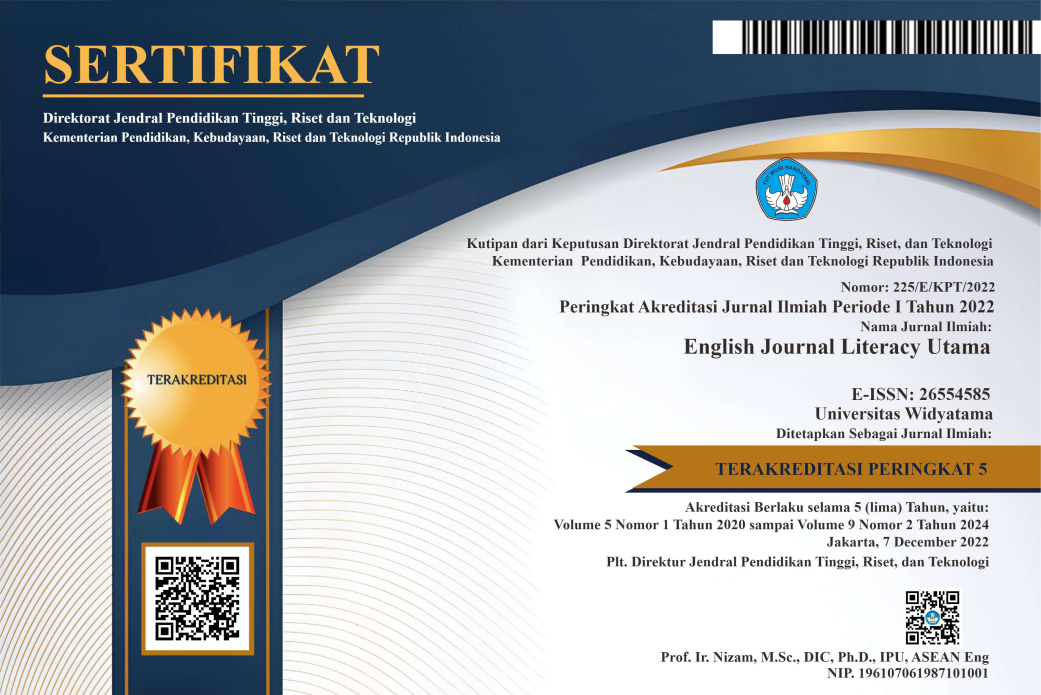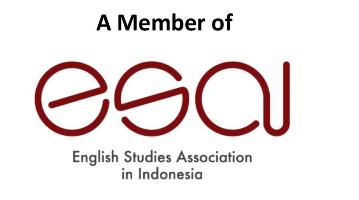Analysis of Laskar Pelangi in English Version Based on Transitivity Theory
DOI:
https://doi.org/10.33197/ejlutama.vol3.iss1.2019.30Keywords:
analysis, participant, process, transitivityAbstract
This study aims to investigate the characterizations of Lintang in the English version of Laskar Pelangi novel (2009), The Rainbow Troops, based on Transitivity. As the unit of analysis, the data are 30 selected clauses, both uttered by Lintang himself or the narrator. The clauses are arranged chronologically based on the plot of the story consisting of phase 1 (opening), phase 2 (conflict & climax), and phase 3 (closing). This research employs qualitative descriptive design (Fraenkel & Wallen, 2007: 430). The approach for this research is narrative inquiry. According to Croker (Heigham & Croker, 2009: 16), among disciplines using narrative inquiry are anthropology, sociology, history, psychology and literature. The results show that based on transitivity theory, the characterizations of Lintang are represented and portrayed by the types of process and participant in every clause. Among his emerging characterizations are: hyperactive, brave, never-gives-up kid, heroism, and willing to sacrifice for his family.















